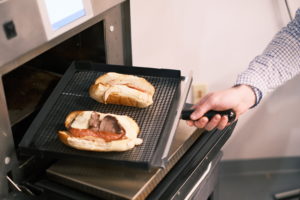
OEM PTFE vs. Secondary Market Products:
Why Choosing the Secondary Market for PTFE Smallwares in the Food Service Industry Saves You Money While Still Getting Equal or Better Quality When it
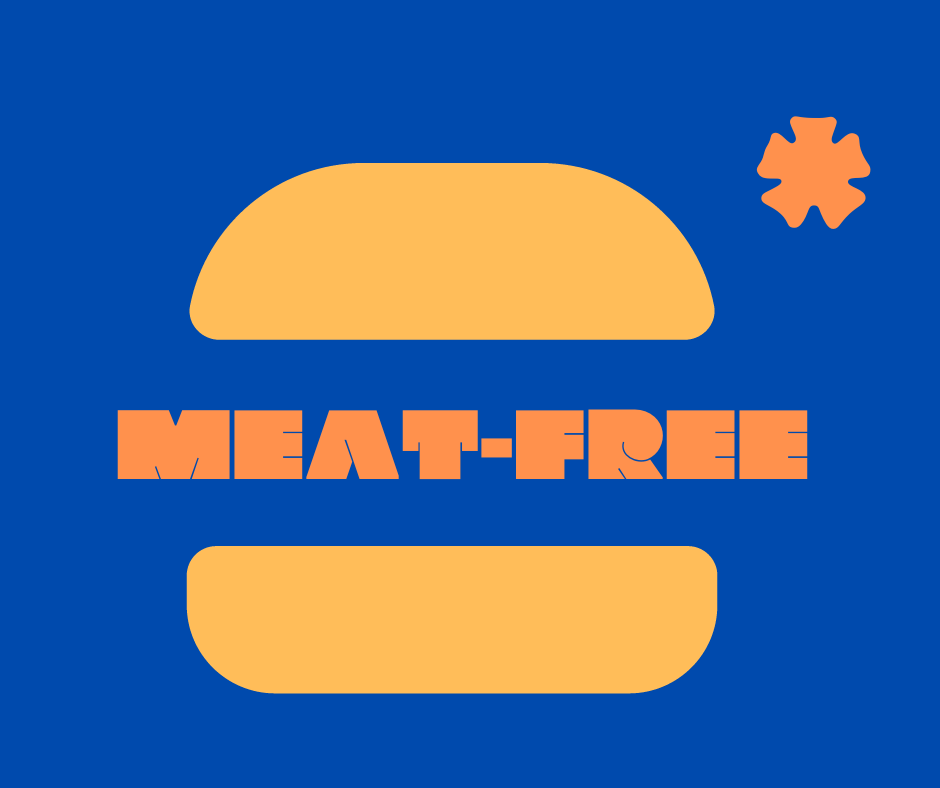
Short answer: just about all the top chains.
The power of a plant-based launch can be game-changing. Take a look at White Castle, the trendsetter who premiered their Impossible Slider in 2018 initially saw a 250% jump in sales. For Carl’s Jr., its Beyond Famous Star Burger was the chain’s most successful burger launch with more than 4.5 million in the first two years, many to new customers. Many brands followed suit, with Burger King, Taco Bell, even chicken-forward brands like KFC rolling out their own take on plant-based meat. There was only one problem…
A 2019 class action lawsuit against one chain argued beef patties cooked on the same grill top as plant-based patties negated the claim of meat-free “thus covering the outside of the meat-free patties with meat by-product.”
If this seems like a technicality, the court is on your side. The case was dismissed, but it left a bad taste in the mouth of many vegetarians and vegans who felt misled. For guests looking for a truly meat-free option, the promotion of menu options that catered to them, but didn’t go the distance, felt like deception.
Trust is the gold standard in brand image. Consumers want to believe that when their burger is advertised as meat-free, there’s no hidden asterisk. So I called around, curious about different restaurants’ protocol around a vegetarian order.
One chain was happy to microwave their patties upon request to adhere to vegetarian diets, an option which solves the main issue but lacks the signature grill marks and perfectly even temperature distribution.
Another chain explained they had no way to cook the patty separately, and pointed out they intentionally don’t call their burger “meat-free”. Touche.
The last brand I called surprised me, and informed me that they use a whole separate griddle for their plant-based products to avoid cross-contamination. As a customer, that was the clear winner.
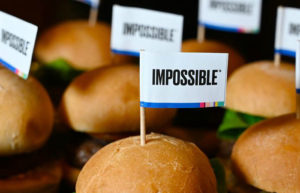
What technically counts as “cross-contamination” is a game no one wants to play, and new equipment is prohibitively expensive. So where can you land in the middle?
One contamination-free, griddle-friendly alternative is solid PTFE grill baskets and sheets. These high-heat, non-stick accessories are already in many kitchens, used to toast the perfect bun. These easy to clean, lightweight tools aren’t a uni-tasker, just as capable on a high speed toaster line as they are in the broiler or on the griddle.
The best solution is often the simplest, and so it is with these cost-effective, contamination-free accessories. Using a grill basket or sheet virtually eliminates the chance of cross-contam.
Vegan food sales alone are expected to balloon from a $13.2 billion global industry to $24 billion by 2026. Over 16 million Americans, or 5% of the population, consider themselves vegetarian, and that sector is expected to grow. Rising to the task today will save footwork down the line, and endear brands to a segment of consumers that seems destined to grow for the foreseeable future.
The global vegan food market size was USD 23.31 billion in 2020. The global vegan food market is projected to grow from $26.16 billion in 2021 to $61.35 billion in 2028 at a CAGR of 12.95% in forecast period, 2021-2028.

Why Choosing the Secondary Market for PTFE Smallwares in the Food Service Industry Saves You Money While Still Getting Equal or Better Quality When it
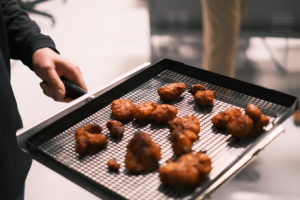
Commercial kitchens are bustling hubs of culinary creativity, constantly striving to meet the demands of a hungry customer base. However, a significant challenge faced by
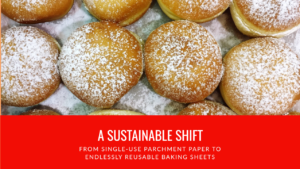
A Sustainable Shift: Silicone-Coated Parchment Paper vs. Reusable PTFE Baking Sheets In the realm of baking, the quest for sustainable alternatives has led to a
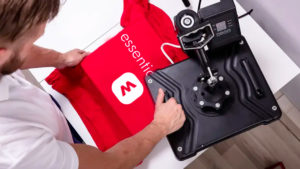
Have you ever wondered about the magic behind non-stick pans or the effortless glide of your kitchen tools? The secret ingredient lies in a remarkable
7637 Euclid Chardon Rd
Kirtland, Ohio 44094
Phone Numbers
Toll Free: 888-975-0405 | Local: 330-975-0405 |
Fax: 888-201-1196
(C) 2024 Essentialware. All Rights Reserved.